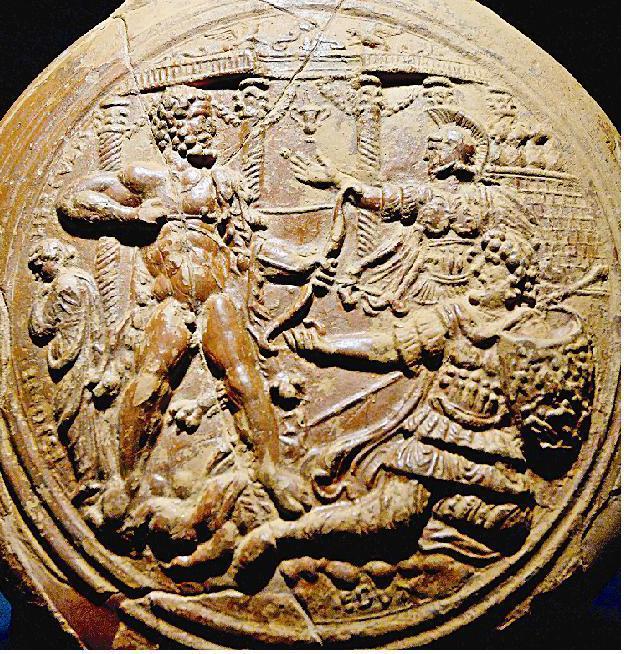Ancient city Troy to have own museum
ÇANAKKALE - Anatolia News Agency

Troy has been under excavation for 150 years by five different archeologists.
Excavations at the site of the ancient city of Troy, in the northwestern province of Çanakkale, began over 150 years ago, yet experts believe two or three more centuries of work will be needed to fully discover it.There is huge potential for further excavation at the site, Çanakkale Onsekiz Mart University academic Rüstem Aslan told Anatolia news agency. “For the past 15 years, everyone has been discussing the dream of a Troy museum. The construction of the museum will start soon.”
Troy has been under excavation for 150 years by five different archeologists.
“When digging first began in the soil of Troy, in 1863, the excavations were directed by Frank Calvert,” Aslan said. “It was later continued by German archaeologist Professor Manfred Osman Korfmann, in 1988. During that time the excavation area underwent huge changes.”
After Korfmann, Professor Ernst Pernicka took over the excavation works, but due to insufficient resources the excavation works stalled. Aslan said he himself had been involved in the excavations for 25 years.
Excavations at the site
Excavations at the site have also been carried out by foreign institutions. Germany’s Tübingen University has been conducting excavations since 1988, first headed by Professor Korfmann and then taken over by Professor Ernst Pernicka in 2005. The university halted excavations due to of financial problems in 2012.
 During the time of Korfmann, The Troy Foundation managed to accumulate sufficient resources to support the excavations.
During the time of Korfmann, The Troy Foundation managed to accumulate sufficient resources to support the excavations. The long-running excavations are of great significance to the Aegean side of Turkey and its archeology, Aslan said, as Troy is the place where pre-history began.
“Troy is the place where the first archeological data relating to Homer’s epic was found. This means that this is not a surreal ancient city; this is the birthplace of archeology,” he said.
In 1996 the area was turned into a national park, and in 1998 it was added to the list of UNESCO world heritage sites.
Noting that it is possible to excavate the ruins of Troy for another 300 years, as many parts of the site are still yet to excavated.
Aslan said Troy would become a source of huge prestige for Turkey. “The area is very important and it will contribute to the tourism in Çanakkale and the western side of Turkey a lot,” he added.
A recently published book of articles on Troy retraces the city’s excavation and its relation to Anatolian culture.
Articles by Manfred Osman Korfmann, the former head of excavations at Troy, have been collected in a book entitled “Troia Rüzgarı” (Troy Wind), published last year in Turkish, English and German.
Aslan said the articles in the book explain how the ancient city had been transformed from ruins into a tourism center, the as well as shedding light on the excavation process and the city’s ties with Anatolia.
The articles had previously been published in magazines but were not easily accessible. “They are hard to find and have been forgotten over time. This is why we thought that we should collect important articles by Korfmann, and especially select those focusing on the fact that Troy is a part of Anatolian culture.”
















